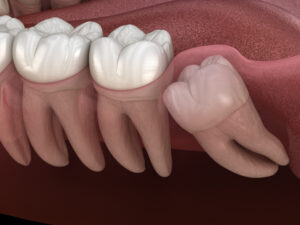Tooth Extractions in Memphis TN
OR CALL (901) 761-3770
New & Existing
Patient Forms
PHone
(901) 761-3770
Address
6268 Poplar Ave.
Memphis, TN, 38119
1122 Poplar View Ln N
Collierville, TN 38017
At Periodontal Associates of Memphis, we understand how stressful the thought of a tooth extraction can be. Whether it’s due to severe decay, infection, or overcrowding, our board-certified periodontists provide tooth extractions in Memphis, TN using advanced techniques to ensure your comfort and safety throughout the process.
Tooth extraction is a common but important procedure that, when necessary, can improve your oral health and quality of life. Below, we break down everything you need to know about the procedure, reasons for extraction, healing tips, and what sets our practice apart.
What Is a Tooth Extraction?
We strive to preserve your natural teeth whenever possible, but in cases where a tooth is beyond saving—due to trauma, infection, or crowding—extraction becomes the healthiest solution. Rest assured, our priority is always to treat your condition conservatively before considering removal.
Reasons You Might Need a Tooth Extracted
Here are the most common reasons why you or your periodontist might consider a tooth extraction:
1. Impacted Wisdom Teeth
Third molars (wisdom teeth) often don’t have enough room to erupt properly. They may come in sideways or remain trapped under the gum line. Impacted teeth can cause pain, swelling, and even shift surrounding teeth out of alignment. Extraction prevents these complications.
2. Severe Tooth Decay
When decay penetrates deep into the tooth and reaches the pulp or root, it may not be possible to save the tooth with a filling, root canal, or crown. In such cases, extracting the tooth can stop the spread of infection and relieve pain.
3. Advanced Periodontal Disease
Gum disease, especially in its later stages, weakens the bone and tissues supporting your teeth. This can lead to loosening or shifting of teeth. If a tooth becomes too unstable, it may need to be removed to protect the integrity of surrounding teeth and gums.
4. Overcrowded Teeth
If your jaw doesn’t have enough room to accommodate all of your teeth, extractions might be recommended—often in preparation for orthodontic treatment like braces or Invisalign.
5. Dental Abscess or Infection
A tooth abscess is a serious bacterial infection that causes pus to collect inside the gums or at the base of a tooth. If antibiotics or a root canal fail, removal may be the only option to stop the infection from spreading.
6. Fractured or Broken Teeth
Sometimes trauma or biting on a hard object causes a tooth to fracture below the gumline or into multiple pieces. If it cannot be reconstructed, extraction becomes necessary.
Types of Tooth Extractions
There are two primary types of extractions we perform at our Memphis office:
1. Simple Extraction
Performed when the tooth is visible above the gumline. The periodontist will loosen the tooth with an instrument called an elevator and then remove it with forceps.
2. Surgical Extraction
Necessary when the tooth is impacted, broken below the gumline, or cannot be accessed easily. This involves making a small incision in the gum and, in some cases, removing a small amount of bone around the tooth.
Both types of extractions are performed under local anesthesia to ensure minimal discomfort.
Preparing for Your Tooth Extraction
- Any heart conditions, implants, or prosthetics
- Medications you take, including blood thinners
- Recent illnesses, surgeries, or allergies
We may take digital X-rays to assess the position of the tooth and surrounding structures. Depending on the complexity, we’ll also discuss anesthesia options and go over your personalized treatment plan.
What Happens During the Extraction Procedure?
- Local Anesthesia is applied to numb the area and ensure you feel no pain during the procedure.
- The periodontist will carefully loosen the tooth using gentle motions to widen the socket.
- Once the tooth is sufficiently loosened, it will be gently removed with minimal force.
- If necessary, stitches may be placed to close the gum tissue and aid in healing.
- Gauze will be applied to the site to control bleeding, and you’ll be given instructions for at-home care.
Tooth Extraction Aftercare: Healing Tips & Best Practices
Healing from an extraction typically takes 7–10 days, depending on the complexity of the case and how well you follow aftercare instructions.
Post-Op Tips:
- Keep the gauze in place for 30–45 minutes after your appointment.
- Avoid spitting, using straws, or smoking for at least 48 hours to prevent dry socket.
- Apply cold compresses to reduce swelling.
- Eat soft foods like yogurt, applesauce, soup, or mashed potatoes for the first couple of days.
- Take any prescribed antibiotics or pain medications as directed.
- Rinse with warm salt water after 24 hours (unless otherwise instructed).
If you experience excessive bleeding, fever, swelling, or persistent pain, contact our office immediately.
Tooth Replacement Options After Extraction
- Dental Implants: Permanent, natural-looking tooth replacements placed directly into the jawbone.
- Bridges: Fixed dental prosthetics anchored to adjacent teeth.
- Partial Dentures: Removable appliances to fill gaps caused by missing teeth.
We’ll help you choose the best solution based on your oral health, budget, and goals.
Frequently Asked Questions About Tooth Extractions
Is a tooth extraction painful?
Thanks to modern local anesthesia and gentle techniques, most patients report little to no pain during the procedure. Some discomfort afterward is normal and manageable with medication.
How long does it take to recover?
Initial healing typically takes 7–10 days. Full healing of the bone and soft tissue may take a few weeks to a few months.
Can I go back to work or school after my extraction?
Most patients take the rest of the day off to rest. You may resume light activities the following day unless otherwise advised by our periodontists.
Why Choose Periodontal Associates of Memphis?
- Decades of experience in surgical and non-surgical dental care
- State-of-the-art technology and sterilization procedures
- Personalized treatment plans and patient education
- Gentle, comprehensive care from consultation to recovery
We work closely with referring general dentists and offer in-house sedation options to make your experience as comfortable as possible.

